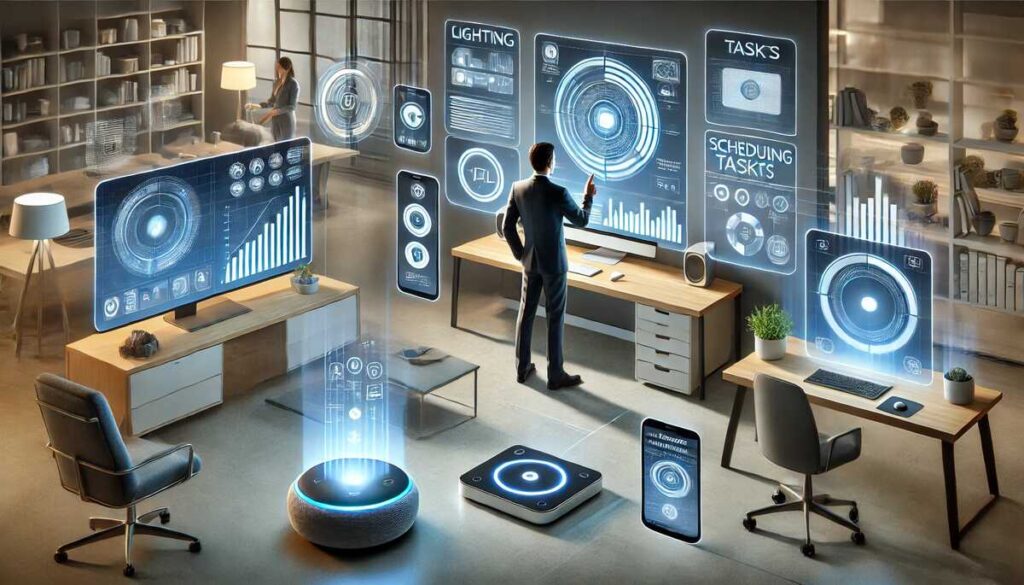The Silent AI Shift Happening Behind Corporate Doors
Amid the noisy hype around AI, how to create a viral chatbot or a synthetic celebrity, we may fail to observe quiet but a tsunami-like change taking place in the largest enterprises of the world. But as everyone is distracted with playing ChatGPT, big business is sneaking AI copilots into their business. JPMorgan, IKEA and Walmart are among the companies that have slotted AI copilots into their core business. These tools are not only answering questions, they are generating reports, identifying compliance concerns, rewriting internal playbooks and even predicting retail trends.
The revolution of AI in the corporations is not glamorous. It’s calculated. And it is growing at a rate that most of the world out of these boardrooms is not aware of. Actually, no matter whether your organization is already experimenting with copilots already, you are not lagging behind, you are invisible.
Inside the Machine: What AI Copilots Actually Do
So, let’s get this out of the way: AI copilots are not just chatbots stapled onto Excel sheets. Developers weave these domain-specific systems into daily workflows; they are smart and often custom-trained. Think of a compliance report that is normally generated by a team of people and takes around 3 hours to be presented to an investment analyst; generated on-the-fly in seconds. Or a store manager receiving a natural language report on this week prices anomalies in 200 stores. This is the job of copilots.
It is about minimizing making decisions. The majority of them also integrate retrieval-augmented generation (RAG), enterprise search, and fine-tuned LLMs to transform unruly databases into useful action lists. An example is Microsoft having Copilot for 365 that is already deployed by more than 30,000 enterprise customers to summarize meetings, rewrite emails, generates financial overviews, and even much more that is specifically conscious of your work history.
The 2025 Q1 tech report at Accenture states that, on average, copilots save 43 percent of their work time when making documentation tasks, although returns are more significant in the area of customer service and companies with high volumes of logistics.
Walmart, JPMorgan & IKEA: Playing Chess, Not Checkers
Who then is getting it right? Let us simplify.
- Walmart has launched an internal AI assistant that helps store managers check inventory discrepancies, optimize stocking levels, and even communicate directly with floor associates using natural language. Their most recent earnings report declared that the AI platform decreased average inventory misplacement by 14 percent year-to-year.
- JPMorgan Chase isn’t just experimenting—they’re engineering. Their own IndexGPT tool assists financial analysts scan through market information, create investment memos, and point out SEC compliance red flags within seconds. Not theoretical, that is in use at various desks at this moment. The company also went viral after applying to patent their proprietary language model, which they trained using decades of proprietary financial data.
- IKEA, meanwhile, is quietly using AI copilots to forecast global shipping delays, seasonal demand, and even carbon footprint metrics for their sustainability division. Just last week the VP of technology of a company told the MIT Technology Review that their copilot has removed more than a dozen individual dashboards his company uses to an interface that can be viewed and understood by non-technical employees.
These are not trial projects. They are tactical revampings.
Human Still in the Loop (And Why That’s the Point)
There is one myth out there that copilots are not displacing workers, they are bionicizing workers. One of the midlevel managers at a Fortune 500 logistics company explained that she experienced her copilot journey as moving from feeling overwhelmed to feeling orchestral. Now she has 20 percent more deliveries a quarter to manage not because she works more hours, but because she has an AI tool that creates route optimizations, updates with customer ETA, and for carrier contracts based on her inbox activity.
Organizations such as Deloitte and PwC are currently introducing AI literacy in the onboarding procedures not as an opportunity but a requirement. They are even training employees to prompt, check, and even dismiss AI proposed decisions. It is important, copilots are not only answering, they are working together.
That is how Dr. Erik Baldwin, enterprise AI Consultant at McKinsey, describes it:
The most intelligent companies in 2025 will not be those who put AI instead of managers. They not only will have managers who supervise teams enhanced by AI, but they will also be ahead of the pack.
Copilot Future Looks… Autonomous
This is barely nailing the tip of the iceberg. In sectors such as law, medicine and energy, task-specific autonomous agents will form the next generation of copilots. Not only providing you with answers to your questions, but also taking actions, writing and sending reports, raising alerts, scheduling meetings, even calling APIs in real-time.
Consider an example of a new enterprise platform, Manus.AI, which is a combination of AI copilots, as well as an agentic workflow. During recent beta testing at two U.S insurance companies, it sped up the claims processing time by 31 percent and did not hire a single new worker.
What’s next? Consider memory copilots. Cross-department copilots. Sales copilots incorporate in real-time emotional intelligence. No more sci-fi, it is roadmap.
Final Thought: Adapt or Become Outdated
It is a silent, yet irrefutable fact that will unfold in the board rooms of fortune 100 companies; are the employees of your competitors utilizing AI copilots and you are not?
It is no longer a choice to have AI copilots in large companies.They are soon becoming the new operating system of work itself.And as with all revolutions, the greatest danger is not going too far too fast, but by going too slow.
As a leader, it is not next quarter that there is need to act. It’s today.
Since in the era of AI copilots, the competition, therefore offices — rather, who works faster with computers.


